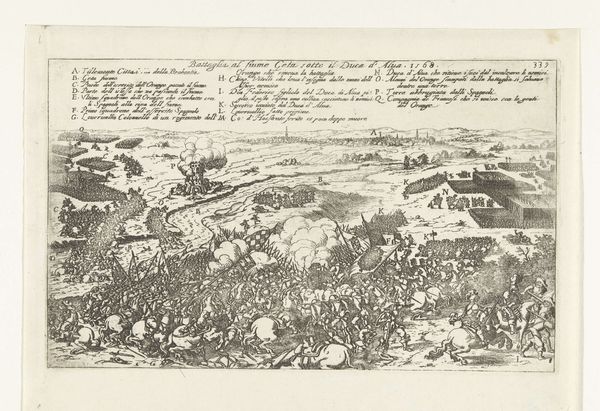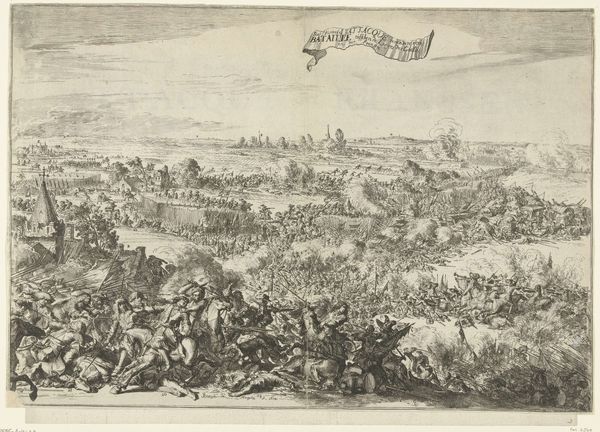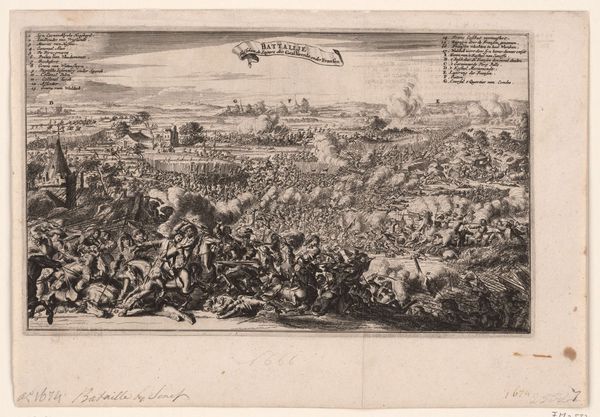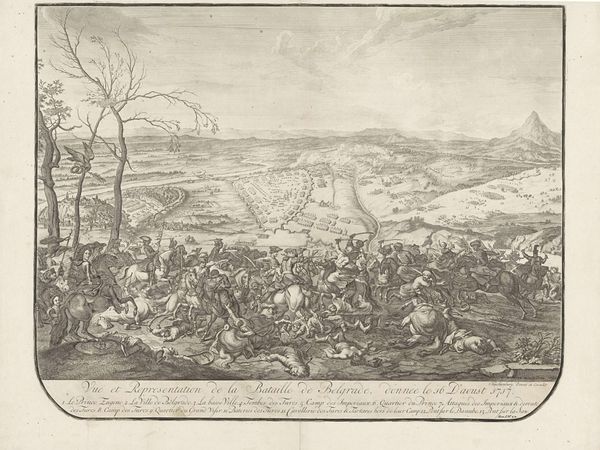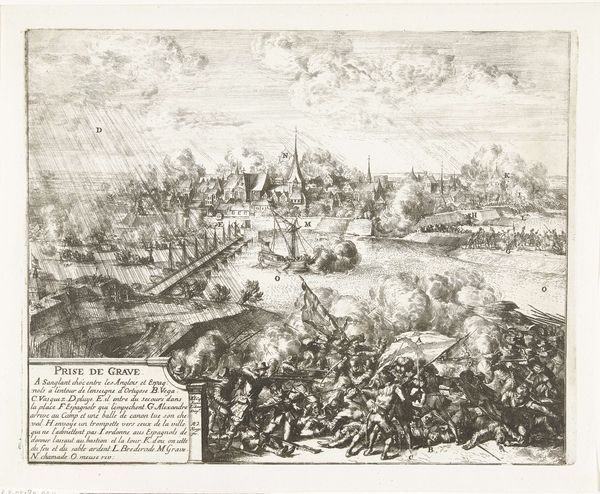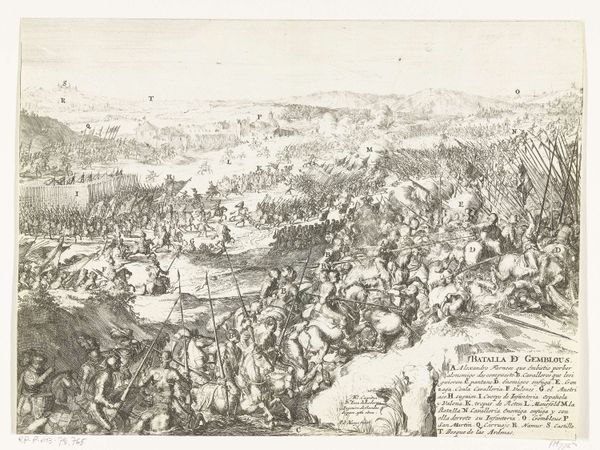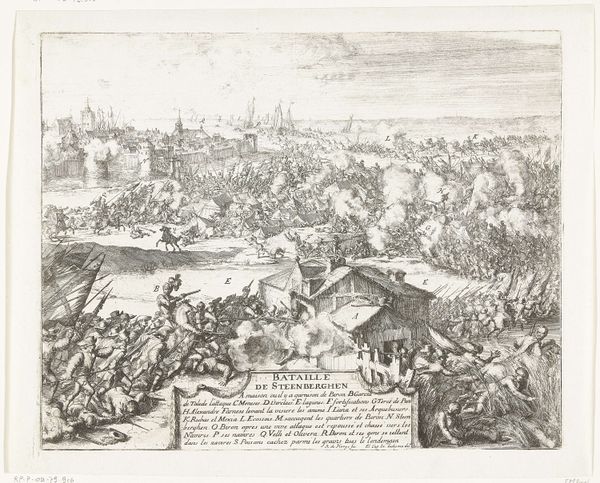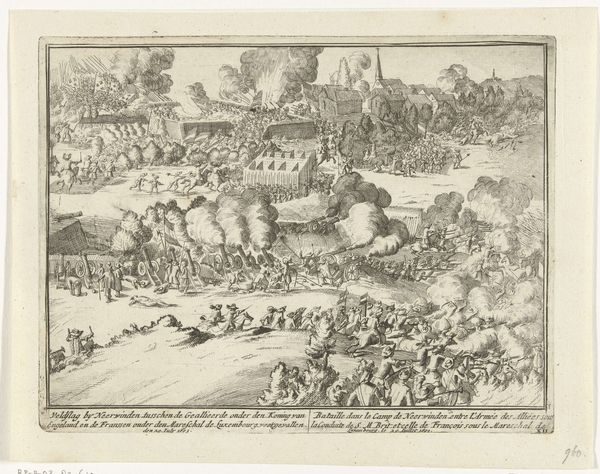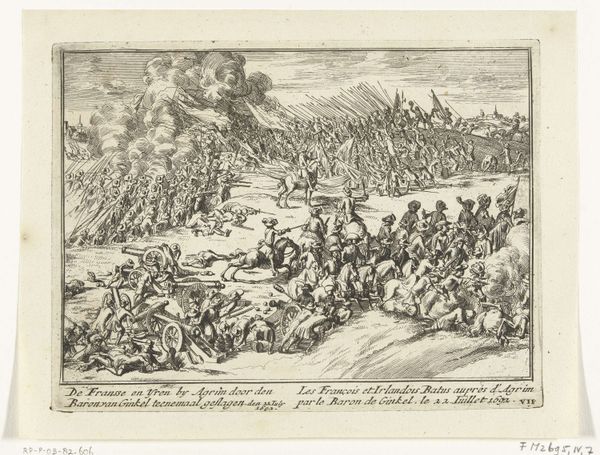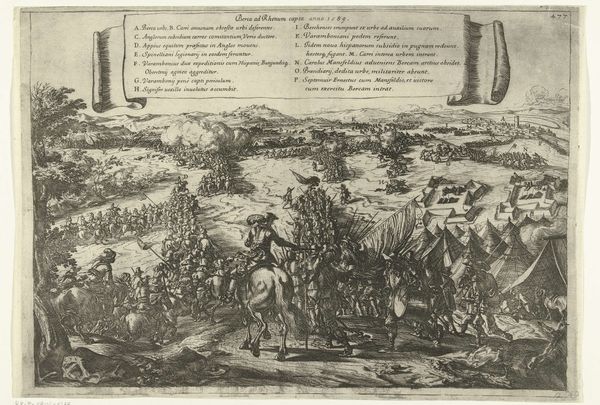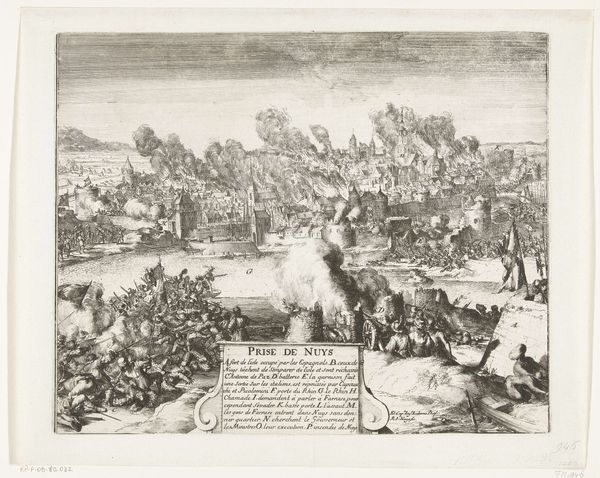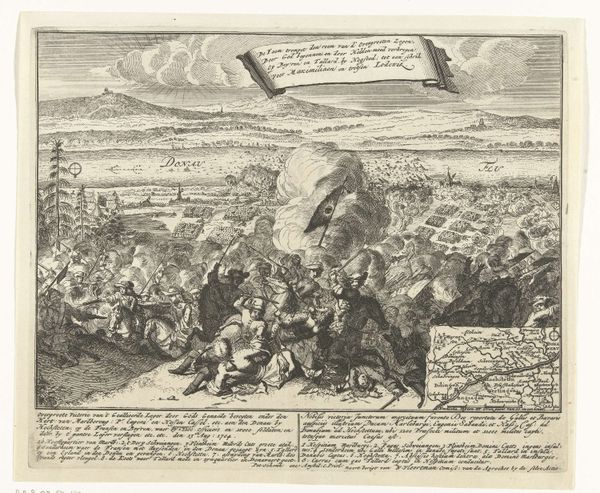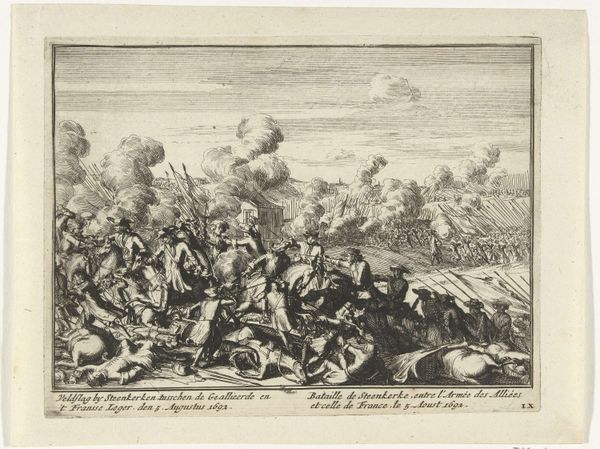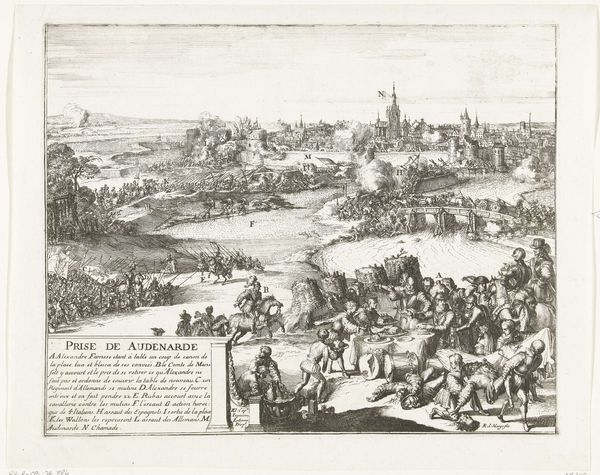
drawing, etching, ink, pen, engraving
#
drawing
#
ink drawing
#
narrative-art
#
baroque
#
pen drawing
#
mechanical pen drawing
#
pen illustration
#
pen sketch
#
etching
#
landscape
#
ink
#
pen
#
history-painting
#
engraving
Dimensions: height 270 mm, width 343 mm
Copyright: Rijks Museum: Open Domain
This print, "Strijd om de Kauwensteinse dijk, 1585", was made by Romeyn de Hooghe around the turn of the 18th century using etching, a printmaking process that democratized image production in its day. The etching's linear quality and sharp contrasts are characteristic of the technique. An etcher covers a metal plate with a waxy ground, then scratches an image into that surface, exposes the plate to acid, which bites away the exposed lines. The plate is then inked and printed. Considered this way, etching is an indirect, intellectual approach to image-making. The acid does the work, the etcher only directs it. This was perfectly suited to the rise of a mercantile Dutch society, and the increasing industrialization of labor. By the time de Hooghe made this print, the etching process had become essential for mass communication, much as photography would centuries later. De Hooghe’s choice of etching allowed for the wide dissemination of information and propaganda, blurring the lines between art, craft, and social commentary.
Comments
No comments
Be the first to comment and join the conversation on the ultimate creative platform.
